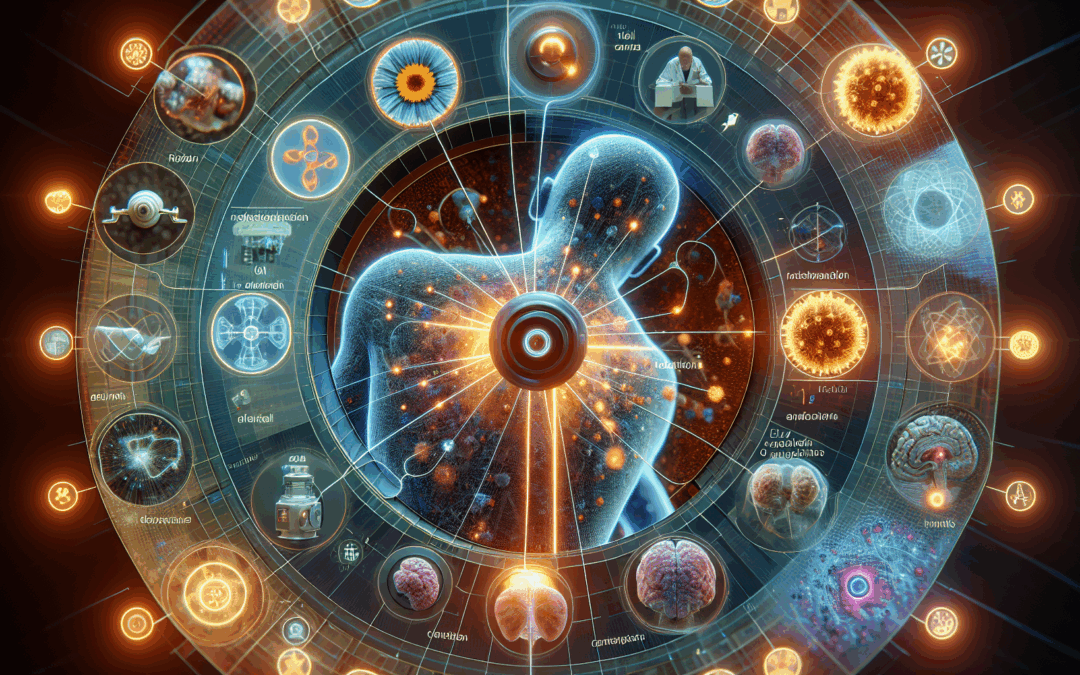Harnessing AI in Radiation Oncology: A Strategic Partnership for Enhancing Patient Care
🌟 As we advance into the era of technological innovation, the integration of artificial intelligence in the field of radiation oncology opens new possibilities for transformative care. Drawing inspiration from the tenets of military philosophy, the idea that AI is a tool designed to serve clinical therapeutic purposes rather than existing as an end in itself resonates deeply. In radiation oncology, the primacy of medicine dictates that technology should only be seen in the context of how it enhances patient treatment and care.
🛠️ Just as strategic military means should not be considered in isolation from their objectives, the same applies to AI in the medical world. AI technology is not merely an engineering feat; it is an integral part of the radiation oncology landscape. By embracing this, we recognize AI’s role in advancing the field, leveraging its potential to contribute to the ultimate goal of improved patient outcomes.
🧑🏫 As radiation oncology evolves, it becomes increasingly important for clinicians to broaden their expertise, incorporating computer science knowledge into their skill sets. This confluence of disciplines not only enriches the practice but positions AI as a natural extension of current medical approaches, augmenting rather than supplanting them. It is a journey of collaboration, where human insight and technological prowess intersect for a greater cause.
🌈 An inspiring vision of the future is one where AI serves as a partner in the healing process. By maintaining a balanced approach that honors the foundational principles of medicine, AI can enhance radiation oncology practices, fostering a brighter, healthier tomorrow. The dedication to these principles ensures that technological advances will always align with the compassionate care that defines the field.
The ideas presented here are derived from the following article: https://pmc.ncbi.nlm.nih.gov/articles/PMC11839879/
🌟 As we advance into the era of technological innovation, the integration of artificial intelligence in the field of radiation oncology opens new possibilities for transformative care. Drawing inspiration from the tenets of military philosophy, the idea that AI is a tool designed to serve clinical therapeutic purposes rather than existing as an end in itself resonates deeply. In radiation oncology, the primacy of medicine dictates that technology should only be seen in the context of how it enhances patient treatment and care.
🛠️ Just as strategic military means should not be considered in isolation from their objectives, the same applies to AI in the medical world. AI technology is not merely an engineering feat; it is an integral part of the radiation oncology landscape. By embracing this, we recognize AI’s role in advancing the field, leveraging its potential to contribute to the ultimate goal of improved patient outcomes.
🧑🏫 As radiation oncology evolves, it becomes increasingly important for clinicians to broaden their expertise, incorporating computer science knowledge into their skill sets. This confluence of disciplines not only enriches the practice but positions AI as a natural extension of current medical approaches, augmenting rather than supplanting them. It is a journey of collaboration, where human insight and technological prowess intersect for a greater cause.
🌈 An inspiring vision of the future is one where AI serves as a partner in the healing process. By maintaining a balanced approach that honors the foundational principles of medicine, AI can enhance radiation oncology practices, fostering a brighter, healthier tomorrow. The dedication to these principles ensures that technological advances will always align with the compassionate care that defines the field.
